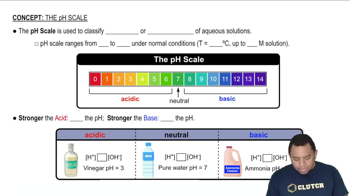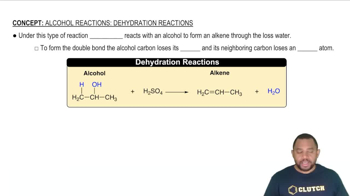Textbook Question
Use Le Châtelier's principle to predict whether the solubility of BaF2 will increase, decrease, or remain the same on addition of each of the following substances. (d) Ba1NO322

 Verified step by step guidance
Verified step by step guidance


Use Le Châtelier's principle to predict whether the solubility of BaF2 will increase, decrease, or remain the same on addition of each of the following substances. (d) Ba1NO322
Which of the following compounds are more soluble in acidic solution than in pure water? Write a balanced net ionic equation for each dissolution reaction. (b) Fe(OH)3